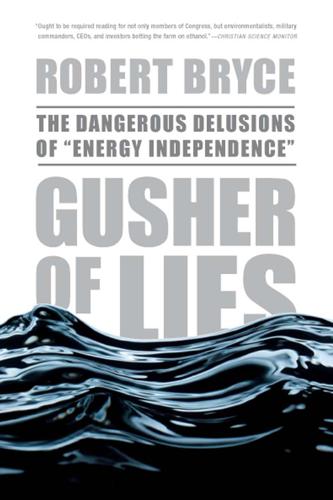
Gusher of Lies: The Dangerous Delusions of Energy Independence
by
Robert Bryce
Published 16 Mar 2011
The next chapter will discuss how America’s frustrations in Iraq, along with fears about peak oil and other matters, are contributing to the emotional appeal of energy independence. 2 THE EMOTIONAL APPEAL OF ENERGY INDEPENDENCE I n early 2006, George W. Bush famously declared that America was “addicted to oil.” That surely is true. America is addicted to oil. And that habit is big and costly. But pardon me for asking an impertinent— but critical—question: So what? Every other country on the planet is addicted to oil, too. Other developed countries—namely, Japan, Germany, and France—import nearly all of their oil and they have been doing so for many years.1 China’s oil import needs are growing faster than those of any other country.
…
Other developed countries—namely, Japan, Germany, and France—import nearly all of their oil and they have been doing so for many years.1 China’s oil import needs are growing faster than those of any other country. And yet the Chinese don’t have a single soldier on the ground in the Persian Gulf. They are not panicking, nor are their leaders yammering about energy independence. The countries of the world, the people of the world, are addicted to oil because it is a remarkably flexible substance. It’s compact, contains loads of heat energy, is easily transported, and can be used for a myriad of tasks, from transportation, to making plastics, to heating, to electricity production. America’s access to plentiful supplies of cheap motor fuel has contributed directly to its affluence.
…
And when it comes to ethanol, the costs are enormous, a fact that has led Nicholas Hollis, the president of the Agribusiness Council, an agriculture trade group, to declare that “ethanol is the largest scam in our nation’s history.” Herewith, an itemized invoice of that scam. BILLIONS IN SUBSIDIES—FOR WHAT, EXACTLY? If America is “addicted” to oil, then it’s equally true that the corn ethanol industry is a world-class junkie when it comes to subsidies. For decades, American politicians have been talking about the need to reduce farm subsidies, and yet, with the ethanol scam, those subsidies, particularly the $0.51-per-gallon tax credit, are thriving.10 Making ethanol from corn borders on fiscal insanity.
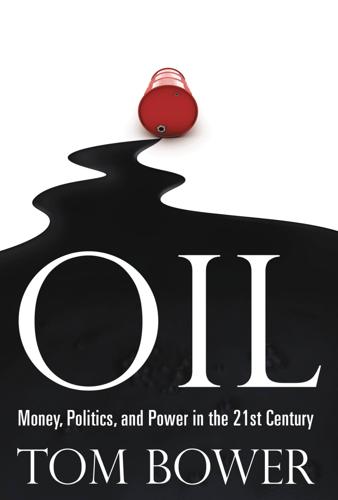
Oil: Money, Politics, and Power in the 21st Century
by
Tom Bower
Published 1 Jan 2009
Hall was impressed by that accuracy, and by a wave of other predictions, based upon Hubbert’s assessment, published under the umbrella of the “peak oil theory.” Like-minded petroleum experts and environmentalists grasped at peak oil to support their campaign against the excessive use of fossil fuel, and in particular against what President George W. Bush would call America’s “addiction to oil.” Emboldened by his new fame, Hubbert had predicted in the early 1970s that production in the North Sea would peak in 1985 at 2.5 million barrels a day, and global crude production would peak in 2000 at 12.5 billion barrels a year. Neither Hall nor other “oil peakists” would be disillusioned when Hubbert proved mistaken.
…
“Just months ago,” he said, “the debate was whether $20 could be held. Now $50 is a floor rather than a ceiling.” Even his critics agreed that the predictions of doom were causing prices to rise. “Simple economics says that this [surge in demand] can’t continue,” commented Oil & Gas. President Bush’s vow to end America’s “addiction to oil” and encourage the switch to renewables added to the atmosphere of peril. Even a CERA researcher spoke of a peak in 2020. The oil economists employed by Saudi Aramco at Box 8000 in Dhahran could only smile. Since 1999 the Saudis had been controlling production, hoping to influence prices. They had never anticipated that a combination of oil peakists and speculators could achieve their goal.
…
Raymond had boasted that his corporation had earned a 31 percent return on capital in 2005, beating BP, with 20 percent, into second place. With those profits, many in Congress suspected the industry was using the loss of a million barrels a day of oil after Hurricane Katrina as an excuse for extra profiteering. Schumer blamed President Bush for being “addicted to oil companies.” On November 9, 2005, Lee Raymond replied to those accusations at a Senate hearing. With a weary air of “While politicians come and go, ExxonMobil continues in the same course,” he explained some realities: ridiculing the idea of oil companies rigging the market, he pointed out that ExxonMobil produced only 3 percent of the world’s oil; the market had worked perfectly after the summer’s price rises; oil prices had fallen as supplies were restored, especially after Saudi Arabia increased production to compensate for losses from the hurricanes; ExxonMobil invested the same amount in good times and bad, because each project took so long to mature — the proof was Sakhalin’s development, which would take 10 years, but would produce oil for 40 years.
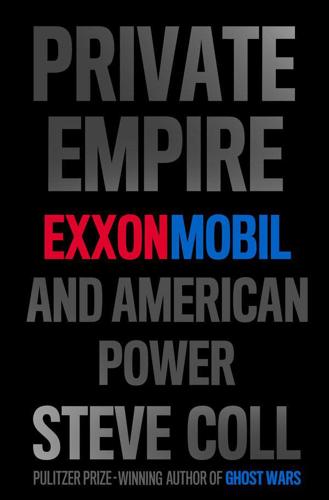
Private Empire: ExxonMobil and American Power
by
Steve Coll
Published 30 Apr 2012
Bush delivered a State of the Union address in which he declared that the United States was, unfortunately, “addicted” to oil. A generation after President Jimmy Carter had declared America’s oil dependency to be the “moral equivalent of war,” and as casualties in Bush’s Iraq War accumulated, the president laid out a timetable for greater American energy independence, driven above all by his exhaustion with radical suppliers such as Venezuela and Iran: Keeping America competitive requires affordable energy. And here we have a serious problem: America is addicted to oil, which is often imported from unstable parts of the world. The best way to break this addiction is through technology. . . .
…
This placed his thinking firmly in the tradition of emotionally declared, inadequately engineered American energy policies dating back to Richard Nixon.2 ExxonMobil’s executives regarded the president’s romanticism about energy “independence” and alternative technologies as misguided. Describing the United States as addicted to oil was “an unfortunate choice of words, quite frankly,” Tillerson said. “To say that you’re addicted to oil and natural gas seems to me to say you’re addicted to economic growth.”3 ExxonMobil executives privately traded theories of psychological analysis about Bush—perhaps the president felt compelled to distance himself from his family’s history in the oil business or he feared his legacy as president would be “oiled” if he did not forcefully endorse alternative energy investments.
…
Like presidents of both parties before him, however, he lacked the depth of conviction, the political coalitions, and the scientific vision to do more than toss relative pennies into a wishing fountain. At the ExxonMobil K Street office, Dan Nelson and his colleagues worked the phones to track what might emerge in the energy policy sections of the annual State of the Union, but in the case of the “addicted to oil” speech in 2006, they failed to intervene successfully. Drafts of the president’s address were very closely held. They learned that a push toward ethanol would receive heavy play, but they received no preview of the language repudiating oil and gas. Inside the White House that winter, economists and National Security Council senior directors who believed that global oil markets were liquid and interdependent—and who believed that “independence” from oil imports was an unnecessary and illusory goal—failed, too, to persuade the Bush speechwriters to remove the talk’s reference to ending Middle East dependency.

Cities Under Siege: The New Military Urbanism
by
Stephen Graham
Published 30 Oct 2009
US Energy Policy: In Conflict with the War on Terrorism, Institute for International Economics, January 2004, 1, available at www.pkverlegerllc.com; Kraemer, Addicted To Oil, 13. 20 Campbell, ‘The Biopolitics of Security’, 952. 21 Paul Salopek, ‘A Tank of Gas, a World of Trouble’, Chicago Tribune, 29 July 2006. 22 George Monbiot, ‘Driving into the Abyss’, Guardian, 6 July 2004. 23 Quoted in Campbell, ‘The Biopolitics of Security’. 24 Ross, ‘Duct Tape Nation, 2. 25 Shimshon Bichler and Jonathan Nitzan, ‘Dominant Capital and the New Wars’, Journal Of World-Systems Research 10: 2, 2004, 255–327. 26 Campbell, ‘The Biopolitics of Security’, 945. 27 Ibid. 28 Ibid. 29 Michael Hardt and Antonio Negri, Empire, Cambridge, MA: Harvard University Press, 2000, 22. 30 Daniel Miller, ‘Forward: Getting Behind the Wheel’, in Elaine Cardenas and Ellen Gorman, eds, The Hummer: Myths of Consumer Culture, Lanham, MD: Lexington Books, 2007, vii-x, ix. 31 Lieven De Cauter, The Capsular Civilization: On the City in the Age of Fear, Rotterdam: Nai Publishers, 2004. 32 Ibid., 81. 33 Ibid. 34 Ibid., 83. 35 Shane Gunster, ‘“You Belong Outside”: Advertising, Nature, and the SUV, Ethics & The Environment 9: 2, 2004, 4–32. 36 Ibid., 15. 37 De Cauter, The Capsular Civilization. 38 Campbell, ‘The Biopolitics of Security’, 943. 39 Jim Kunstler, ‘Clusterfuck Nation’, 25 June 2007, available at jameshowardkunstler.typepad.com/clusterfuck_nation. 40 Ibid. 41 Amidon, America’s Strategic Imperative. 42 Kraemer, Addicted To Oil, 8. 43 Jonathon Bell, ed., Carchitecture: When the Car and the City Collide, Basel: Birkhäuser, 2001. 44 Kraemer, Addicted To Oil. 45 Cited in Salopek, ‘A Tank of Gas, a World of Trouble’. 46 Ibid. 47 Ibid. 48 Aida Edemariam, ‘The True Cost of War’, Guardian, 28 February 2008. 49 Ibid. 50 Michael Klare, ‘America Out of Gas’, Tom Dispatch, 8 May 2008. 51 Ibid. 52 Don Mitchell, ‘The SUV Model of Citizenship: Floating Bubbles, Buffer Zones, and the Rise of the ‘‘Purely Atomic’’ Individual’, Political Geography 24, 2005, 77–100. 53 Ibid., 80. 54 Ibid., 84. 55 Ibid., 80. 56 Ellen Gorman, ‘The “stop and stare” aesthetics of the Hummer: Aesthetic illusion as an independent function, in Cardenas and Gorman, eds, The Hummer: Myths of Consumer Culture, 87. 57 Cauter, The Capsular Civilization. 58 Garnar, ‘Portable Civilizations and Urban Assault Vehicles’, 7. 59 Setha Low, ‘Lhe new emotions of home: Fear, insecurity and paranoia’, in Michael Sorkin, ed., Indefensible Space: The Architecture of the National Insecurity State, New York: Routledge, 2007, 233–257. 60 Gunster, ‘“You Belong Outside”: Advertising, Nature, and the SUV, 4–32. 61 Garnar, ‘Portable Civilizations and Urban Assault Vehicles’, 7. 62 Gunster, ‘‘You Belong Outside’: Advertising, Nature, and the SUV, 20. 63 Ibid., 25–6. 64 Ibid., 12. 65 Ibid., 25–6. 66 Garnar, ’Portable Civilizations and Urban Assault Vehicles’, 7. 67 Macek, Urban Nightmares, 276. 68 Garnar, ‘Portable Civilizations and Urban Assault Vehicles’, 7. 69 Paul Wilborn, ‘Hummer Mania: SUV Backlash?
…
Amidon, America’s Strategic Imperative: A National Energy Policy Manhattan Project, US Air Force Air War College, Air University, 25 February 2005, available at research.au.af.mil, 35. 12 Campbell, ‘The Biopolitics of Security’, 958. 13 Macek, Urban Nightmares, 273. 14 Quoted in Borger, ‘Half of Global Car Exhaust Produced by US Vehicles’. 15 Thomas Kraemer, Addicted To Oil: Strategic Implications Of American Oil Policy, US Army Strategic Studies Institute, May 2006, 2. 16 National Energy Information Center, ‘Transportation Energy Use’, International Energy Outlook, 148. 17 Borger, ‘Half of Global Car Exhaust Produced by US Vehicles’. 18 National Commission on Energy Policy, Oil Shockwave: Oil Crisis Executive Simulation, Washington: National Commission on Energy Policy, 2005, available at www. secureenergy.org. 19 Philip K.
…
Amidon, America’s Strategic Imperative: A National Energy Policy Manhattan Project, US Air Force Air War College, Air University, 25 February 2005, available at research.au.af.mil, 35. 12 Campbell, ‘The Biopolitics of Security’, 958. 13 Macek, Urban Nightmares, 273. 14 Quoted in Borger, ‘Half of Global Car Exhaust Produced by US Vehicles’. 15 Thomas Kraemer, Addicted To Oil: Strategic Implications Of American Oil Policy, US Army Strategic Studies Institute, May 2006, 2. 16 National Energy Information Center, ‘Transportation Energy Use’, International Energy Outlook, 148. 17 Borger, ‘Half of Global Car Exhaust Produced by US Vehicles’. 18 National Commission on Energy Policy, Oil Shockwave: Oil Crisis Executive Simulation, Washington: National Commission on Energy Policy, 2005, available at www. secureenergy.org. 19 Philip K. Verleger, Jr. US Energy Policy: In Conflict with the War on Terrorism, Institute for International Economics, January 2004, 1, available at www.pkverlegerllc.com; Kraemer, Addicted To Oil, 13. 20 Campbell, ‘The Biopolitics of Security’, 952. 21 Paul Salopek, ‘A Tank of Gas, a World of Trouble’, Chicago Tribune, 29 July 2006. 22 George Monbiot, ‘Driving into the Abyss’, Guardian, 6 July 2004. 23 Quoted in Campbell, ‘The Biopolitics of Security’. 24 Ross, ‘Duct Tape Nation, 2. 25 Shimshon Bichler and Jonathan Nitzan, ‘Dominant Capital and the New Wars’, Journal Of World-Systems Research 10: 2, 2004, 255–327. 26 Campbell, ‘The Biopolitics of Security’, 945. 27 Ibid. 28 Ibid. 29 Michael Hardt and Antonio Negri, Empire, Cambridge, MA: Harvard University Press, 2000, 22. 30 Daniel Miller, ‘Forward: Getting Behind the Wheel’, in Elaine Cardenas and Ellen Gorman, eds, The Hummer: Myths of Consumer Culture, Lanham, MD: Lexington Books, 2007, vii-x, ix. 31 Lieven De Cauter, The Capsular Civilization: On the City in the Age of Fear, Rotterdam: Nai Publishers, 2004. 32 Ibid., 81. 33 Ibid. 34 Ibid., 83. 35 Shane Gunster, ‘“You Belong Outside”: Advertising, Nature, and the SUV, Ethics & The Environment 9: 2, 2004, 4–32. 36 Ibid., 15. 37 De Cauter, The Capsular Civilization. 38 Campbell, ‘The Biopolitics of Security’, 943. 39 Jim Kunstler, ‘Clusterfuck Nation’, 25 June 2007, available at jameshowardkunstler.typepad.com/clusterfuck_nation. 40 Ibid. 41 Amidon, America’s Strategic Imperative. 42 Kraemer, Addicted To Oil, 8. 43 Jonathon Bell, ed., Carchitecture: When the Car and the City Collide, Basel: Birkhäuser, 2001. 44 Kraemer, Addicted To Oil. 45 Cited in Salopek, ‘A Tank of Gas, a World of Trouble’. 46 Ibid. 47 Ibid. 48 Aida Edemariam, ‘The True Cost of War’, Guardian, 28 February 2008. 49 Ibid. 50 Michael Klare, ‘America Out of Gas’, Tom Dispatch, 8 May 2008. 51 Ibid. 52 Don Mitchell, ‘The SUV Model of Citizenship: Floating Bubbles, Buffer Zones, and the Rise of the ‘‘Purely Atomic’’ Individual’, Political Geography 24, 2005, 77–100. 53 Ibid., 80. 54 Ibid., 84. 55 Ibid., 80. 56 Ellen Gorman, ‘The “stop and stare” aesthetics of the Hummer: Aesthetic illusion as an independent function, in Cardenas and Gorman, eds, The Hummer: Myths of Consumer Culture, 87. 57 Cauter, The Capsular Civilization. 58 Garnar, ‘Portable Civilizations and Urban Assault Vehicles’, 7. 59 Setha Low, ‘Lhe new emotions of home: Fear, insecurity and paranoia’, in Michael Sorkin, ed., Indefensible Space: The Architecture of the National Insecurity State, New York: Routledge, 2007, 233–257. 60 Gunster, ‘“You Belong Outside”: Advertising, Nature, and the SUV, 4–32. 61 Garnar, ‘Portable Civilizations and Urban Assault Vehicles’, 7. 62 Gunster, ‘‘You Belong Outside’: Advertising, Nature, and the SUV, 20. 63 Ibid., 25–6. 64 Ibid., 12. 65 Ibid., 25–6. 66 Garnar, ’Portable Civilizations and Urban Assault Vehicles’, 7. 67 Macek, Urban Nightmares, 276. 68 Garnar, ‘Portable Civilizations and Urban Assault Vehicles’, 7. 69 Paul Wilborn, ‘Hummer Mania: SUV Backlash?
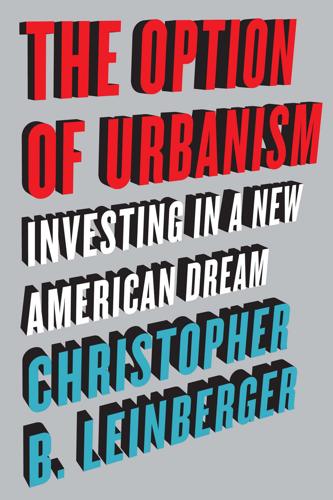
The Option of Urbanism: Investing in a New American Dream
by
Christopher B. Leinberger
Published 15 Nov 2008
As has been understood clearly only in the post– September 11th world, a significant unintended consequence of the drivable sub-urbanism domestic policy is its impact on foreign policy and the overarching need to maintain access to oil abroad. There are now more than 100 U.S. bases in the Middle East, almost all built within the past twenty years. Tom Friedman of the New York Times called it “petrolism—or petroleum-based politics.”60 Friedman recognized that the U.S. addiction to oil, primarily to maintain drivable sub-urbanism, fuels the very authoritarian regimes that support terrorism, against which U.S. foreign policy is fighting today. In Friedman’s view, every gallon of gasoline purchased to maintain drivable sub-urbanism undermines U.S. foreign policy. Michael O’Hanlon, a senior fellow at The Brookings Institution, estimated that at least twenty-five percent of the defense budget of $519 billion C O N S E Q U E N C E S O F D R I VA B L E S U B - U R B A N G R O W T H | 8 3 in fiscal year 2006 was spent in the Middle East, fighting the war in Iraq, protecting foreign governments’ oil infrastructure, defending Israel, and patrolling oil shipping lanes.61 Other estimates allocate upward of forty percent of the defense budget, or $200 billion, to the Middle East.
…
“Survey of the World Economy,” The Economist, September 14, 2006, http:// www.economist.com/surveys/displayStory.cfm?story_id=7877959. 58. James Howard Kunstler, The Long Emergency: Surviving the Converging Catastrophes of the Twenty-First Century (New York: Atlantic Monthly Press, 2005). 59. Hirsch, Bezdek, and Wendling, “Peaking of World Oil Production.” 60. Thomas Friedman, “Addicted to Oil,” The New York Times, February 1, 2006. 61. Michael D’Arcy, Michael O’Hanlon, et al. Protecting the Homeland (Washington, D.C.: The Brookings Institution Press, 2006). 62. This is a calculation by the author assuming that sixty percent of gasoline prices are a result of the cost of crude oil; the rest is for processing and distribution.
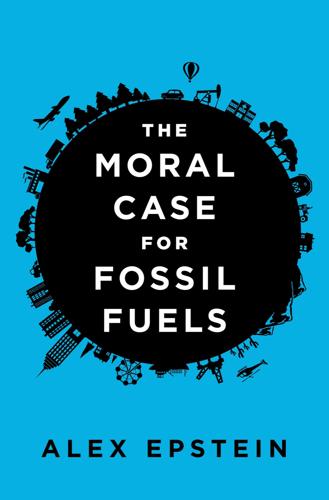
The Moral Case for Fossil Fuels
by
Alex Epstein
Published 13 Nov 2014
This is not a liberal view or a conservative view; it’s a view that almost everyone holds in one form or another. Even fossil fuel companies make statements like the one the former CEO of Shell made in 2013: “We believe climate change is real and time is running out to take real action to reduce greenhouse gas emissions.”3 President George W. Bush was the person who popularized the expression “addicted to oil.”4 The debate over our addiction to fossil fuels is usually over how dangerous the addiction is and how quickly we can get rid of it—not whether we have one. And the most prominent groups say we must get rid of it very quickly. For years, the Nobel Prize–winning Intergovernmental Panel on Climate Change (IPCC) has demanded that the United States and other industrialized countries cut carbon dioxide emissions to 20 percent of 1990 levels by 2050—and the United States has joined hundreds of other countries in agreeing to this goal.5 Every day, we hear of new predictions from prestigious experts reinforcing the calls for massive restrictions on fossil fuel use.
…
Peter Voser, “Getting the Future Energy Mix Right: How the American Shale Revolution Is Changing the World,” Shell, speech, Boston, Mar. 21, 2013, www.shell.com/global/aboutshell/media/speeches-and-webcasts/2013/getting-the-future-energy-mix-right.html. 4. Elizabeth Bumiller and Adam Nagourney, “Bush: ‘America Is Addicted to Oil,’” New York Times, Feb. 1, 2006, www.nytimes.com/2006/02/01/world/americas/01iht-state.html?pagewanted=all&_r=0. 5. Intergovernmental Panel on Climate Change, “Potential of Renewable Energy Outlined in Report by the Intergovernmental Panel on Climate Change,” press release, Abu Dhabi, May 9, 2011, http://srren.ipcc-wg3.de/press/content/potential-of-renewable-energy-outlined-report-by-the-intergovernmental-panel-on-climate-change. 6.
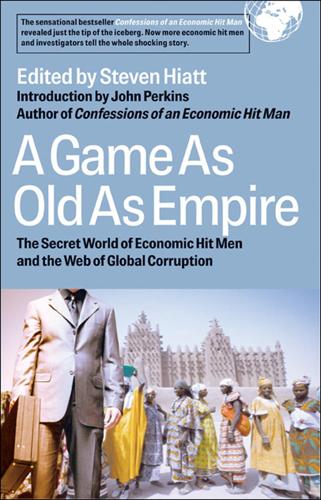
A Game as Old as Empire: The Secret World of Economic Hit Men and the Web of Global Corruption
by
Steven Hiatt; John Perkins
Published 1 Jan 2006
During the late 1990s, oil companies had lobbied hard against any increase in Britain’s rock-bottom taxation of its North Sea oil production, claiming that an increase would make the North Sea economically unviable and they would have to pull out altogether. Rutledge’s research had shown that, for some of the companies making these claims, the North Sea was in fact their most profitable region in the world, even after tax. More recently, Rutledge wrote Addicted to Oil,26 one of the best books available on international energy dynamics and the strategic context of the Iraq War. By constructing economic models of the cash flows on Iraq’s oil fields, we could project how oil revenues would be divided. The result depends on the precise terms of the PSA contract—some PSAs are very profitable for companies, while others are less so.
…
Wälde, “The Current Status of International Petroleum Investment: Regulating, Licensing, Taxing and Contracting,” CEPMLP Journal 1, no. 5 (July 1995), published by the University of Dundee. 25. ITIC, “Petroleum and Iraq’s Future: Fiscal Options and Challenges,” Fall 2004, p. 10. 26. Dunia Chalabi (International Energy Agency), “Perspective for Investment in the Middle East/North Africa Region,” presentation to the OECD, Istanbul, February 11-12, 2004, p. 7. 27. Ian Rutledge, Addicted to Oil: America’s Relentless Drive for Energy Security (London: I. B. Tauris, 2005). 28. These figures are in real terms (2006 prices), undiscounted. The calculation is based on data from the Iraqi Ministry of Oil and industry sources, for the fields Halfaya, Nahr Umar, Majnoon, West Qurna, Gharaf, Nasiriya, Rafidain, Amara, Tuba, Ratawi, East Baghdad, and Ahdab.
…
Available at www.globalpolicy.org/security/oil/2005/crudedesigns.htm. Parenti, Christian. The Freedom: Shadows and Hallucinations in Occupied Iraq. New York: New Press, 2004. Phillips, Kevin. American Theocracy: The Peril and Politics of Radical Religion, Oil, and Borrowed Money in the 21st Century. New York: Viking, 2006. Rutledge, Ian. Addicted to Oil: America’s Relentless Drive for Energy Security. London: I. B. Tauris, 2005. Simmons, Matthew. Twilight in the Desert: The Coming Saudi Oil Shock and the World Economy. New York: John Wiley & Sons, 2005. Yergin, Daniel. The Prize: The Epic Quest for Oil, Money, and Power. New York: Free Press, 1993.
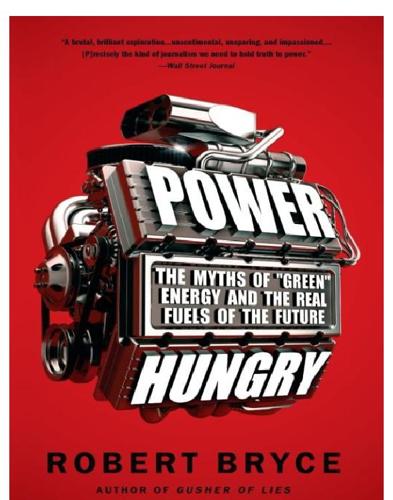
Power Hungry: The Myths of "Green" Energy and the Real Fuels of the Future
by
Robert Bryce
Published 26 Apr 2011
“That’s where the money is,” she said. “That’s the wave of the future.”19 From Gore to Chu and Miss USA to the Hollywood Madam, Americans are being carpet-bombed with energy happy-talk. And that happy talk has contributed to a widespread sense of guilt. Here’s an exercise: The next time you hear someone say “We are addicted to oil” or “We are addicted to coal,” try this: Substitute the word “prosperity” for “oil” or “coal.” I don’t offer that idea to be flippant, but rather to point out just how disconnected America’s rhetoric about energy is from the perspective of the 2 to 3 billion people on the planet who live in dire energy poverty.
…
Indeed, if the Wizard of Menlo Park were still around, he could buy all the cheap generating capacity he wanted. And with an Internet connection and a credit card, he could even get free shipping. CHAPTER 6 If Oil Didn’t Exist, We’d Have to Invent It AMIDST ALL THE RHETORIC about the evils of oil, the evils of OPEC, the claims that we are “addicted” to oil, that oil fosters terrorism, that we can “win the oil endgame,” or that oil is killing the planet, the simple, unavoidable truth is that using oil makes us rich. In fact, if oil didn’t exist, we’d have to invent it. Of course, many people would argue that point, but there’s simply no denying that as oil consumption increases, so does prosperity.
…
In July 2008, Thomas Friedman of the New York Times dubbed Agassi “the Jewish Henry Ford” and said he was launching “an energy revolution” that would end the world’s “oil addiction.”3 A few weeks later, Wired wrote a fawning article on Agassi saying that the entrepreneur had lined up $200 million in funding in his effort to launch “the fifth-largest startup of all time in less than a year.” Agassi has convinced a lot of investors that his plan will work: “Everyone who meets him already believes he can see the future,” gushed the author of the Wired piece.4 In May 2009, Time magazine declared that Agassi was going to “help the world end its addiction to oil by transforming cars from their climatechanging, lung-polluting, gas-guzzling design to one that’s clean, affordable and all-electric.”5 (The glowing article was written by a venture capitalist who had invested in Agassi’s company.) All of that fantastic press, and yet only one or two of the stories bothered to mention the size of Agassi’s electric car fleet, which consisted of exactly one prototype.
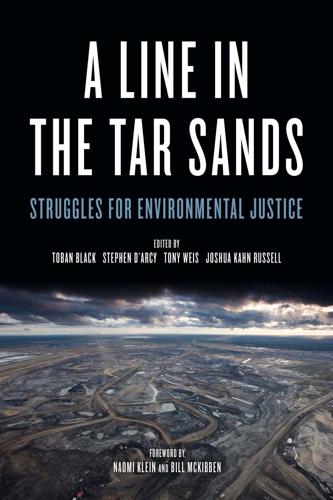
A Line in the Tar Sands: Struggles for Environmental Justice
by
Tony Weis
and
Joshua Kahn Russell
Published 14 Oct 2014
The step forward for the movement, nevertheless, would be tremendously significant, both in reducing on-the-ground impacts of extraction and carbon emissions, and also as a symbol: it would be a declaration that people power is stronger than the people in power. Onward. 17 Gulf Coast Resistance and the Southern Leg of the Keystone XL Pipeline CHERRI FOYTLIN, YUDITH NIETO, KERRY LEMON, AND WILL WOOTEN It has been almost a decade since former president George W. Bush famously proclaimed that the United States was addicted to oil. Yet that addiction has gone untreated, while communities and ecosystems are forced to bear the costs of extraction industry profits. Much like the sores of a methamphetamine user, there are symptoms of addiction to the production of oil and tar sands, such as pipelines, spills, and refinery fumes.
…
By “movement moments,” we mean an event that cross-pollinates multiple movement sectors and efforts and thus helps to change the landscape for organizing. 3. This phrase is commonly used by our friend Gopal Dayaneni of Movement Generation, usually in reference to organizing, though the spirit applies to public calls to action as well. 4. Interestingly, George W. Bush also made similar statements warning that “America is addicted to oil”—while some activists bemoan the disingenuous rhetoric from politicians, we can use that same rhetoric as a tool to campaign against them. en.wikipedia.org/wiki/North_American_energy_independence#Bush.27s_2006_.22Addicted_to_oil.22_speech. 5. Obama made this statement in the speech that announced his run for president.
…
See also Keystone XL pipeline “transit justice,” 307 Trans Mountain pipeline, 11, 91, 95 transnational corporations (TNCs), 23, 27, 114, 272; in United States, 30 Transport Workers Union (TWU), 220 treaties, 256, 258, 260–61 Treaty 6: 119, 123, 125, 268 Treaty 8: 114, 125, 268 treaty rights, 75, 81, 122–23, 271, 274, 277 treaty violations, 139–40, 260 tribal sovereignty, 243 Trinidad and Tobago, “extreme” tar sands extraction in, 103–4 Trumka, Richard, 218, 223–24, 225 Tutu, Archbishop Desmond, 56 Tyee, The, 60 UK Tar Sands Network (UKTSN), 207–16, 292 unemployment, 125, 233, 303, 305 Unifor, 79 Unist’ot’en people, 16, 158–59, 260, 293 United Arab Emirates (UAE), 29 United Church of Christ: Fauntroy report, 67; Toxic Wastes and Race in the United States, 67 United Kingdom: Canada House protest, 208–9; Canadian embassy in, 57; grassroots activism opposing tar sands in, 55; oil imports from, 31; opposition to tar sands in, 207–16; unbuilt wind farms in, 269 United Mine Workers of America (UMW), 218 United Nations, 42, 114, 248, 267; Convention on Biological Diversity, 121; Copenhagen ministerial negotiations (2009), 167–68, 171, 209, 310–12; Declaration on the Rights of Indigenous Peoples, 12, 122, 251, 257, 268; Green Jobs report, 302; Human Rights Committee, 114; International Covenant on Civil and Political Rights, 114; Working Towards a Balanced and Inclusive Green Economy, 300–301 United Nations Environment Programme (UNEP), 302, 353n10; Towards a Green Economy, 300 United States, 6, 42, 78; as “addicted to oil,” 181; Agency for Toxic Substances and Disease Registry, 200; Bureau of Land Management, 315; Canadian lobbying of tar sands in, 59–63; Canadian oil as part of solution to energy security in, 30; civil rights movement, 75, 251; Clean Air Act, 283; climate movement in, 167–69, 243, 311; climate policy in, 244–45, 318; domestic gas prices in, 233; Endangered Species Act, 283; Energy Information Administration, 47; energy market, 24; ENGOs in, 310; Environmental Defense Fund, 283; Environmental Protection Agency (EP A), 198, 203; fight over Keystone XL in, 78, 166–80; forced migration to, 89; guest worker programs in, 85; Indian Energy Title V campaign, 242–43; labour movement and climate change in, 217–25; military industrial complex, 336n8; National Energy Policy Development Group, 30; National Institute of Environmental Health Sciences, 202; National Transportation Safety Board (NTSB), 198–99; Natural Resources Defense Council, 175, 221, 230, 242, 283; as net exporter of refined petroleum, 314; Oil Protection Act, 199; Oil Sands Advocacy Strategy, 59; oil shale exploration and experimentation in, 100; Pipeline and Hazardous Materials Safety Administration (PHMSA), 190, 198–99, 205; refining capacity of West Coast of, 95; tribal comtar munities in, 230–31, 243, 246; unemployment in, 233 uranium, 125, 241, 315–16 Urbaniak, Darek, 59 US Public Interest Research Group, 244 Utah, 315, 325n46 Utica shale formation, 283 Valero Energy Corporation, 210, 234 Velshi, Alykhan, 50–51 Venezuela, 6, 33; Bolivarian Revolution, 101–2; “extreme” tar sands extraction in, 101–2 Vermont, 315 Victims of Chemical Valley, 144 violence: against Indigenous women, 255; against land, 96, 252, 255; increases in rates of, 255; symbolic vs. real, 44; systemic, 263 volatile organic compounds, emissions of, 32 Walpole Island Native reserve (Bkejwanong First Nation), 145, 241 “war in the woods,” 70–71 “war of position,” 39 Warren County (North Carolina), 66–67 water: diversion of, 9, 129; pollution, 9, 51, 114, 116, 119–20, 128, 136, 181, 196, 255, 268, 315; use of in extraction, 9, 32, 33, 100, 230, 281 Wawanosh, Joshua, 139 Waxman, Henry, 60, 62 Waxman-Markey climate legislation, 224 wealth accumulation, vs. environmental and social protection, 38 wealth polarization, 73 web-based resources, list of, 19 “Week of Action to Stop Tar Sands Profiteers,” 189 West, Ben, 164 Western Mining Action Network, 168 West Virginia, 314 wetland, destruction of, 9 Wet’suwet’en Nation, 157, 260, 293; C’ihlts’ehkhyu (Big Frog Clan), 158 white supremacy, 96, 265 Whitley, David, 192 Wikileaks, 56 Wildfire Project, 322n3 wildlife, declines in and threats to, 116, 120–21, 254, 295, 300 wind-powered generation, 314 Winnsboro Tree Blockade, 186–88 Wisconsin: Clean Energy Jobs Act, 61–62 women: grassroots, 192, 277; Indigenous, 193, 209, 213, 242, 246, 251–52, 255, 261–63 Wong, Kent, 97 Wood Buffalo National Park, 130 Woodward, Ron, 130 workers’ rights, 303, 306 World Bank, 90, 303 World Trade Organization, 311 Worldwatch Institute, 353n10 World Wildlife Fund, 270 xenophobia, 92–93 Yearwood Jr., Rev.
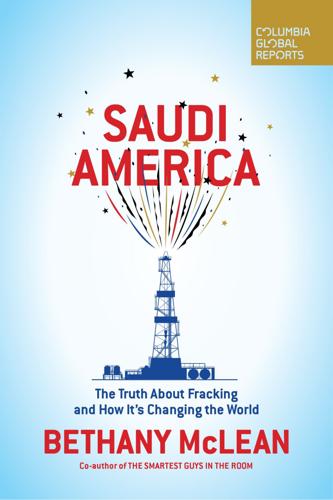
Saudi America: The Truth About Fracking and How It's Changing the World
by
Bethany McLean
Published 10 Sep 2018
But regardless of the truth of that statement, there’s no question that the kingdom’s budget predicament has dramatically increased the stakes. Among other things, Vision 2030 aims to increase the number of Saudis in private employment, reduce dependency on oil—MBS said his country had a “case of addiction to oil”—and most shockingly, sell a stake in Aramco to the public. MBS told an interviewer that as a result of this plan, “If oil stopped in 2020, we can live. We need it. We need it, but I think in 2020, we can live without oil.” It is a high-wire act. The money from the sale, which could be the largest IPO in history, is supposed to be used to fuel Saudi Arabia’s Public Investment Fund, allowing it to embark on an ambitious investment plan.
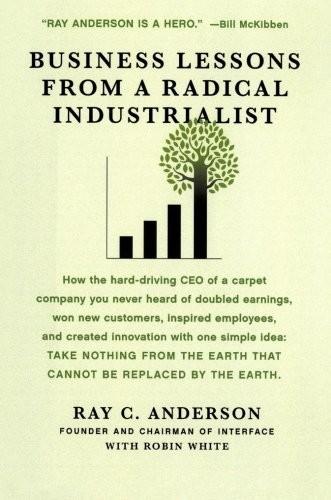
Business Lessons From a Radical Industrialist
by
Ray C. Anderson
Published 28 Mar 2011
So we must begin to shift the discussion away from how much energy we can save profitably and begin to look at how much—and what kinds—of renewable energy we can buy, produce, and use profitably and sustainably. How else do we sever that fossil fuel umbilical cord to the earth? How do we cure an addiction to oil? Certainly not by drilling for and using even more of the stuff. Inevitably, the biggest, cleanest, and most secure source of energy takes center stage—the sun. The opportunities appear almost overwhelmingly encouraging. As we know from research by David Ginley, Martin A. Green, and Reuben Collins, reported in “Solar Energy Conversion Toward 1 Terawatt” (MRS Bulletin, April 2009), the sun floods the earth with 173,000 terawatts each day.
…
Politically, can we do anything that will raise prices when folks are already having a hard time making ends meet? If we did raise gas prices with taxes to discourage driving, how should the tax revenues be used? We humans have woven such a tangled web that we can’t see our way clear to untangle any one knot without making the others worse. That is why ending our addiction to oil is the key. It is the sharp sword we must use, not to untangle those knots, but to slice them clean apart. To do that, we need to think locally, regionally, globally, and politically. We need to make smarter personal decisions about oil, about what we drive and where we drive. And we need smarter regional solutions for moving people and goods from city to city and place to place.
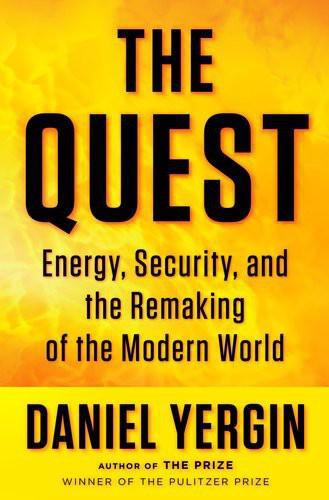
The Quest: Energy, Security, and the Remaking of the Modern World
by
Daniel Yergin
Published 14 May 2011
In 1975, during the first oil crisis, fuel-efficiency standards were introduced, requiring a doubling from the then-average of 13.5 miles per gallon to 27.5 miles per gallon over ten years. And there the standards sat for more than three decades, with some minor tinkering around the edges.23 But circumstances were changing. In his 2006 State of the Union Address, President George W. Bush denounced what he called the nation’s “addiction to oil.” And new players became engaged. The most notable group was the Energy Security Leadership Council, an affiliate of another group, SAFE—Securing America’s Future Energy. The council was chaired by P. X. Kelley, a former commandant of the Marine Corps, and Frederick Smith, the founder and CEO of FedEx.
…
Indeed, Lula was, as the Brazilian president himself later put it, so “truly obsessed with biofuel” that Bush “almost couldn’t have lunch because I wouldn’t stop talking about biofuel.” Meanwhile, Capitol Hill was vigorously promoting the virtues of ethanol. Ethanol as a national strategy became one of the main themes of Bush’s 2006 State of the Union Address. Americans are “addicted to oil,” the president declared in the speech, and he intended to end that. Bush knew that he would catch people’s attention with the reference to addiction. “I kind of startled my country when, at my State of the Union, I said we’re hooked on oil, and we need to get off oil,” he later said. “That seemed counterintuitive, for some people, to hear a Texan say.”8 Ethanol was now flowing into the mainstream.
…
He had written his Ph.D. on grasslands science and had spent decades working on prairie grasses, one of which was switchgrass, which grows in thick tangles, eight or nine feet high. But he didn’t get much attention outside his discipline. Then Alabama’s Senator Jeff Sessions visited Bransby’s switchgrass field and came away impressed by the grass’s potential as a fuel source, and one potentially superior to corn. At a meeting at the White House, prior to the “addicted to oil” 2006 State of the Union, Sessions made the case for switchgrass. Keen to find something new on energy, the administration listened. One can be sure that almost all of the tens of millions of Americans tuned in to the 2006 State of the Union were mystified when President Bush called for the development of “cutting-edge methods of producing ethanol . . . from wood chips and stalks, or switchgrass.”
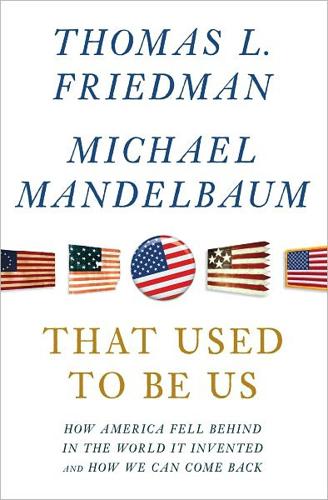
That Used to Be Us
by
Thomas L. Friedman
and
Michael Mandelbaum
Published 1 Sep 2011
Similarly, the best way not to have to kowtow to petro-dictators is to take away, or reduce the value of, the only source of income they have. And the best way to make it possible for the United States to cut its military budget without harming the nation’s security is to reduce our and the world’s addiction to oil. Making oil less important would reduce the military forces we have to keep on station to protect its flow from the Persian Gulf to the rest of the world. And, of course, importing less oil would strengthen the dollar. Americans currently send more than $1 billion a day abroad to purchase both crude oil and refined petroleum products from around the world.
…
No single measure would do more to make America stronger, wealthier, more innovative, more secure, and more respected than implementing a sound energy strategy—putting a price on carbon, or increasing the gasoline tax, or establishing national energy-efficiency standards for every building and home. To dismiss global warming as a hoax and refuse to take any of these steps to reduce our addiction to oil, therefore, is to wage war not just against physics but against the American national interest and against elementary prudence. China has a different approach. “There is really no debate about climate change in China,” said Peggy Liu, chairwoman of the Joint U.S.-China Collaboration on Clean Energy, a nonprofit group working to accelerate the greening of China.
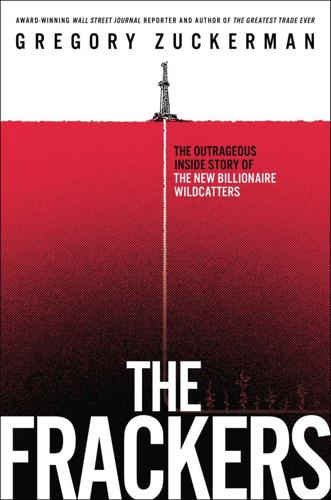
The Frackers: The Outrageous Inside Story of the New Billionaire Wildcatters
by
Gregory Zuckerman
Published 5 Nov 2013
The country enjoyed its largest production increase in history in 2012 and could pump more than eleven million barrels a day by 2020, its highest figure ever and more than even Saudi Arabia currently produces. So much oil is flowing that in a few more years, the United States may not need to import any crude, or might only rely on friends such as Canada and Mexico, ending a fifty-year addiction to oil from countries with interests that many years ago diverged from ours. In 2013, Saudi Arabia’s billionaire prince Alwaleed bin Talal said the kingdom’s oil-dependent economy had become vulnerable to rising U.S. energy production, a shocking turnaround from a few years ago when America seemed hopelessly dependent on Middle Eastern oil.
…
By the spring of 2006, U.S. oil production had dropped to about 5.4 million barrels a day from 9.6 million barrels in 1970 and the country imported a record 60 percent of its oil. President George W. Bush set a goal of replacing 75 percent of the nation’s Mideast oil imports by 2025 with ethanol and other energy sources. Even Bush—a Texas oilman—wasn’t willing to waste his breath urging more U.S. oil production. “America is addicted to oil,” the president warned in a major speech in 2006. By that point, the Montana Bakken was producing forty-eight thousand barrels of crude a day from more than three hundred wells, making it the highest-producing onshore field discovered in the lower forty-eight states in more than five decades.
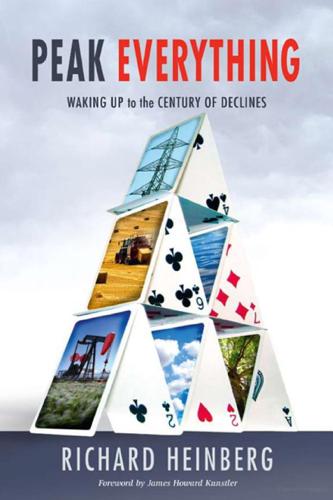
Peak Everything: Waking Up to the Century of Declines
by
Richard Heinberg
and
James Howard (frw) Kunstler
Published 1 Sep 2007
She quotes Herman’s important observation that “recovery can take place only within the context of relationships.”5 All of this suggests that those with psychological training may play as important a role in our collective adaptation to Peak Oil and Climate Change as energy experts and permaculturists. The former should perhaps be gearing up to treat not only individuals but whole communities. A Model for Explanation and Treatment: Addiction and Dependency In his January 2006 State of the Union address, George Bush famously observed that “America is addicted to oil.” This was news to no one, but the phrase struck a nerve: it got more ink in the press the next day than anything else in his speech, and it is still frequently quoted. Following Bush’s statement, more than one commentator advocated the development of a twelve-step program to rid America of its addiction to petroleum.
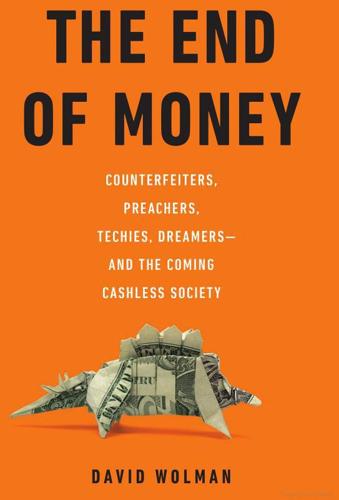
The End of Money: Counterfeiters, Preachers, Techies, Dreamers--And the Coming Cashless Society
by
David Wolman
Published 14 Feb 2012
Forty years since the steep inflation of the 1970s, the prices Americans interact with in daily life have remained remarkably stable relative to incomes. A cold Florida winter might bump up the cost of oranges, and the price of oil rose high enough a few years ago for President George W. Bush to acknowledge the U.S. addiction to oil, but that’s not inflation. In-your-face inflation is when you have to run down supermarket aisles, as people had to do for more than a decade in Brazil, to get ahead of the person whose job every few days was to increase the price of all the items. Younger Americans today have been so lulled by economic stability that the notion of all prices surging upward is alien.
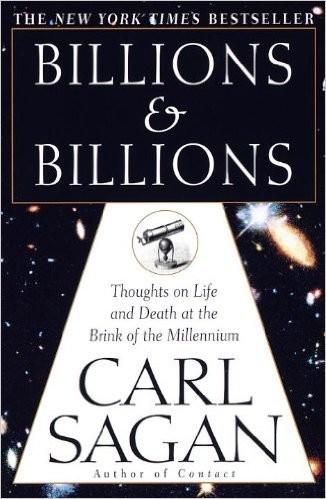
Billions & Billions: Thoughts on Life and Death at the Brink of the Millennium
by
Carl Sagan
Published 11 May 1998
China—with burgeoning consumer demand for autos— may reach the same level early in the twenty-first century. Similar numbers apply to Western Europe. Economists spin scenarios in which increases in oil prices induce inflation, higher interest rates, diminished investment in new industry, fewer jobs, and economic recession. It may not happen, but it is a possible consequence of our addiction to oil. Oil drives nations into policies they might otherwise find unprincipled or foolhardy. Consider, for example, the following (1990) comment from the syndicated columnist Jack Anderson, expressing a widely held opinion: "As unpopular as the notion is, the United States must continue to be policeman for the globe.
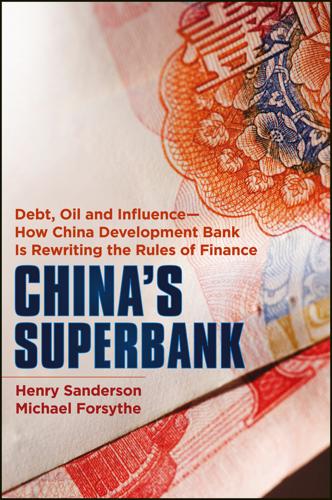
China's Superbank
by
Henry Sanderson
and
Michael Forsythe
Published 26 Sep 2012
CDB’s loans are part of the package of Chinese government support that has made it the largest manufacturer of solar panels, including local government land grants, capacity targets, and its bond market where money can be raised cheaply from state banks. For LDK’s hometown of Xinyu, renewable energy will bring jobs and money, helping boost their careers and giving them an incentive to ignore the strictures of the market and help flailing companies. Changing our centuries-long addiction to oil and fossil fuels is not an easy task; the costs of renewable energy and the difficulties of changing the way we live make the industry a perfect fit for development banks in the early stages. In late 2011, China doubled its 2015 solar power goal. With such political support from the top and a development bank the size of CDB, China is hugely competitive, especially since not many other countries have the stomach to support an industry in a race to the bottom.
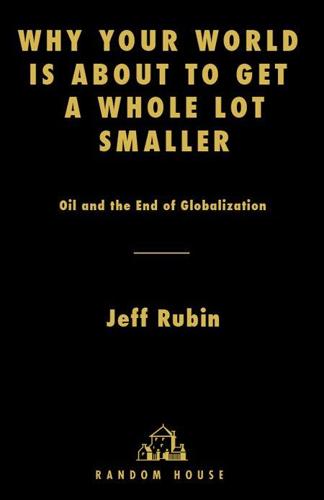
Why Your World Is About to Get a Whole Lot Smaller: Oil and the End of Globalization
by
Jeff Rubin
Published 19 May 2009
In the United States, where the transport sector accounts for about 30 percent of total energy usage in the economy and about 70 percent of the usage of oil, the government brought in the so-called CAFE (corporate average fuel economy) standard in 1975, forcing carmakers to more than double their fuel efficiency, from about 13 miles per gallon to 27 within ten years. Many governments lowered highway driving speed limits in an effort to legislate better fuel economy on their roads. President Carter went so far as to say that kicking Americans’ addiction to oil was “the moral equivalent of war.” The effects of high prices were felt around the world—from state governments in the US asking citizens to turn off Christmas lights to the Danish government imposing jail terms for people who exceeded their electricity rations, and from the UK government asking Britons to heat only one room in winter to a ban on flying, boating and driving on Sundays in many European countries.
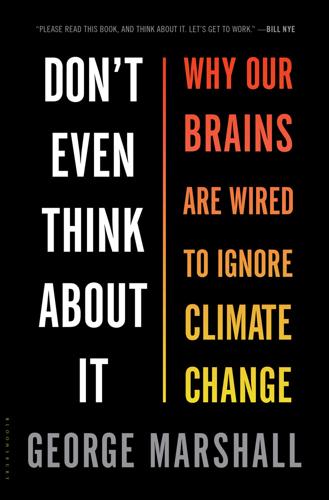
Don't Even Think About It: Why Our Brains Are Wired to Ignore Climate Change
by
George Marshall
Published 18 Aug 2014
Illegal logging is prevented through permits and forest management. And to take a notoriously wicked problem, it would be unthinkable for drug policy to ignore production, which is why the U.S. government spends nearly two billion dollars per year on international control measures. If, as George W. Bush said, we are addicted to oil, then a policy on climate change that ignores production of fossil fuels is like a policy on drugs that ignores the poppy fields, cocaine labs, smuggling networks, and dealers and focuses exclusively on the addicts. In fact, when compared with these other examples, it makes even more sense for climate change policies to include production.
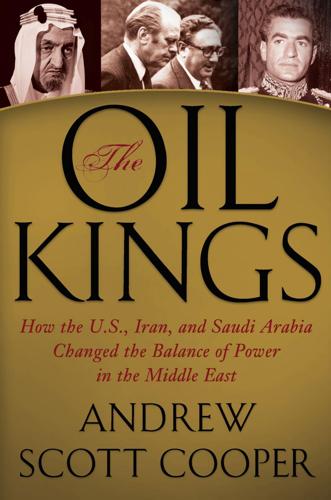
The Oil Kings: How the U.S., Iran, and Saudi Arabia Changed the Balance of Power in the Middle East
by
Andrew Scott Cooper
Published 8 Aug 2011
I do not pretend to know how or whether the turmoil in the Middle East will be resolved. I do know that the future of the Middle East is a most important consideration in any long-term energy forecast. . . . Until industrial economies disengage themselves from, as President George W. Bush put it, “our addiction to oil,” the stability of the industrial economies and hence the global economy will remain at risk. The American economy’s chronic addiction to cheap oil is obvious. Less well known is the story of when that addiction began and why the United States became so reliant in particular on Saudi Arabia for its continued goodwill and cooperation.
…
Now the real world is beginning to press in on the average American and could very well devastate family life and standards of living if we do not confront our longer-term problems and protect the United States from the ever increasing dangers to which it is becoming exposed.” America had to confront its addiction to oil. “The immediate problem is oil,” Greenspan advised, “although I would list our national defense posture and fiscal erosion as equally critical. It is important for the American people to understand how the oil crisis emerged, what it is and what are its potential consequences worldwide if we do not come to grips with it.”
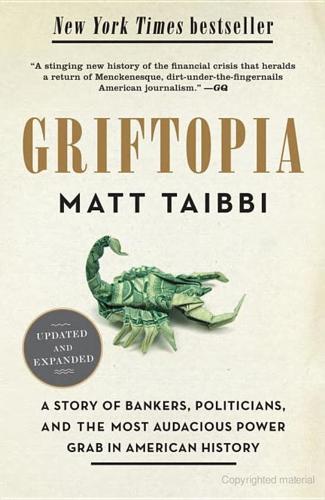
Griftopia: Bubble Machines, Vampire Squids, and the Long Con That Is Breaking America
by
Matt Taibbi
Published 15 Feb 2010
Despite the fact that there was absolutely no evidence that demand was rising or supply falling, Murti continually warned of disruptions to the world oil supply, even going so far as to broadcast the fact that he owned two hybrid cars, adding with a straight face: “One of the biggest challenges our country faces is its addiction to oil.” This was a continuation of a theme Goldman had shamelessly pimped for years, that high prices were the fault of the piggish American consumer; in 2005 a Goldman analyst even wrote that we wouldn’t know when oil prices would fall until we knew “when American consumers will stop buying gas guzzling sport utility vehicles and instead seek fuel efficient alternatives.”
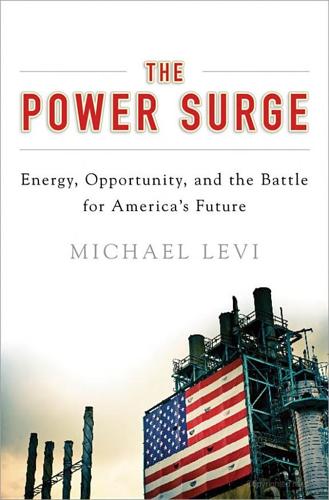
The Power Surge: Energy, Opportunity, and the Battle for America's Future
by
Michael Levi
Published 28 Apr 2013
Precisely such a revolution has recently begun to emerge—and people are promising far more than just climate benefits if it realizes its full potential. 5 T HE C AR O F T HE F U TU R E There are many cars that scream conspicuous consumption, but none quite like the Hummer. A beast weighing in at as much as six thousand pounds and delivering as little as nine miles to a gallon of gasoline, by the mid-2000s, it had come to symbolize the American addiction to oil.1 When U.S. Hummer sales broke thirty thousand in 2003, people noticed; when they climbed over seventy thousand in 2006 despite rising oil prices, many were appalled.2 Those days are looking increasingly ancient. Fewer than ten thousand Hummers were sold in 2009, and after an aborted attempt to sell the brand to China’s Sichuan Tengzhong Heavy Industrial Machinery Company that year, General Motors announced it would be shutting the brand down.3 For a time it seemed as if the American automobile industry would go the same way.
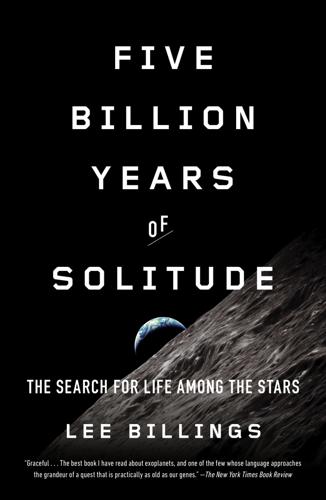
Five Billion Years of Solitude: The Search for Life Among the Stars
by
Lee Billings
Published 2 Oct 2013
Output from the state’s oil fields had already begun to decline by the dawn of the twentieth century, and was progressively overshadowed by immense newly discovered fields in Texas, Venezuela, Saudi Arabia, the Gulf of Mexico, and elsewhere. By the 1950s, Pennsylvania’s Allegheny rocks still contained abundant coal and gas, but in a world increasingly addicted to oil, market forces dictated that those less-profitable fuels simply be left in the ground. Pennsylvania’s energy fortunes sharply rebounded in the first decade of the new millennium. As oil production from conventional, easily accessible reservoirs peaked, energy companies devised new methods to wring more oil and gas from harder-to-reach, “unconventional” source rocks.
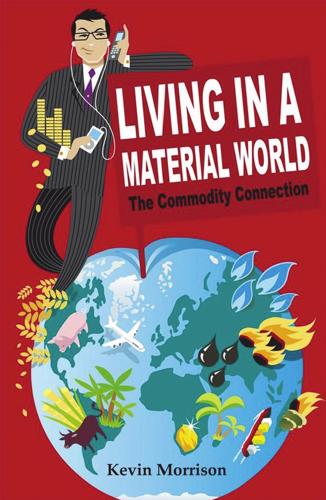
Living in a Material World: The Commodity Connection
by
Kevin Morrison
Published 15 Jul 2008
The number of cars, trucks, SUVs and vans on Chinese roads is expected to increase to a staggering 270 million by 2030 according to the International Energy Agency, so barring a major technological breakthrough in automobile engines or alternative fuel supply (neither of which is expected to be commercially available within the next ten years) China will need even more fuel. China is expected to become as ‘addicted’ to oil as the US within the next 20 years. The transferral of much of the world’s manufacturing industry to China has also stimulated one of the largest movements of humans in history. Its cities have doubled in size in the past 20 years and hundreds of millions of Chinese citizens have moved from the countryside to apartments equipped with electricity – a stark contrast to their rural dwellings, which were largely without power.
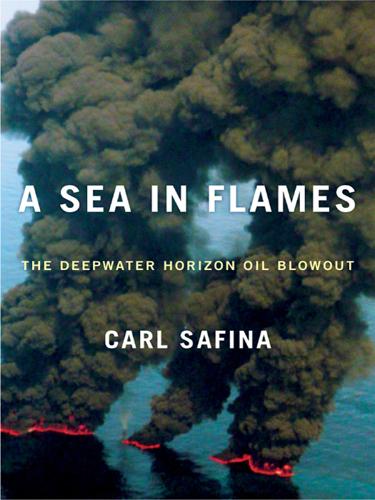
A Sea in Flames: The Deepwater Horizon Oil Blowout
by
Carl Safina
Published 18 Apr 2011
“We have to stop messing around,” writes Friedman, “with idiotic ‘drill, baby, drill’ nostrums, feel-good Earth Day concerts and the paralyzing notion that the American people are not prepared to do anything serious to change our energy mix.” He says this oil spill is like the subprime mortgage mess, a wake-up call and an opportunity to galvanize “radical change that overcomes the powerful lobbies and vested interests that want to keep us addicted to oil.” It all sounds so obvious, and too familiar. And that’s the problem: the things that should have us on fire demanding change somehow fail to rouse we, the people, to the passion that could free us from our dependence on our pushers. Senator John Kerry, one of the first sponsors of the Senate’s energy bill, back before the blowout, seems to share such sentiments.
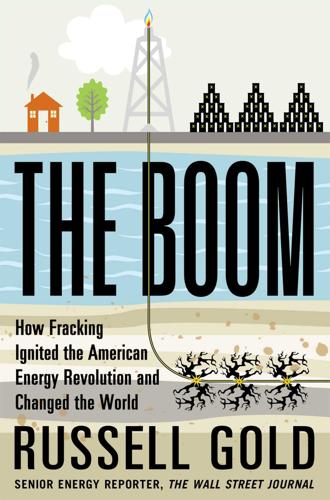
The Boom: How Fracking Ignited the American Energy Revolution and Changed the World
by
Russell Gold
Published 7 Apr 2014
It was written by Jason Channell and issued on September 12, 2012. Birol, Fatih. World Energy Outlook 2011. Special Report: Are We Entering a Golden Age of Gas? Paris: IEA Publications, 2011. ———. Golden Rules for a Golden Age of Gas. Paris: IEA Publications, 2012. Brune, Michael. Coming Clean: Breaking America’s Addiction to Oil and Coal. San Francisco: Sierra Club Books, 2008. Casselman, Ben. “Sierra Club’s Pro-Gas Dilemma: National Group’s Stance Angers On-the-Ground Environmentalists in Several States.” Wall Street Journal, December 21, 2009. Cohen, Michael P. The History of the Sierra Club, 1892–1970. San Francisco: Sierra Club Books, 1988.
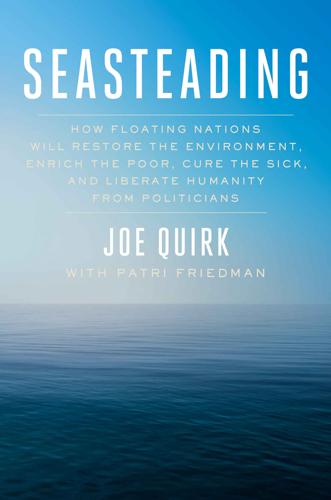
Seasteading: How Floating Nations Will Restore the Environment, Enrich the Poor, Cure the Sick, and Liberate Humanity From Politicians
by
Joe Quirk
and
Patri Friedman
Published 21 Mar 2017
With algae, all these imperatives will lock together in a positive feedback loop, such that algae will be the keystone to the new economy. Lissa stresses: “It’s really driven by the need to feed the world. At first, I was furious that we’re so deep into nations that hate us, just because we’re addicted to oil, but as we and our team pursued this, I was even more horrified to find out we’re going to starve on our way to finding out we’re not going to have enough energy to drive.” In October 2014 National Geographic reported that 99 percent of biofuels produced and consumed worldwide in 2011 were made from food crops.
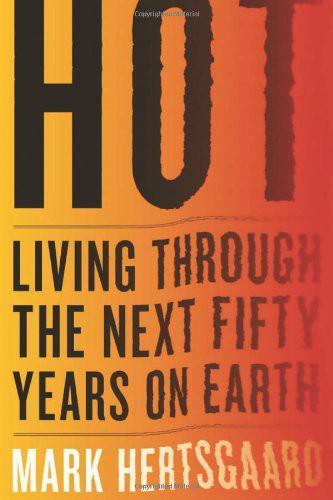
Hot: Living Through the Next Fifty Years on Earth
by
Mark Hertsgaard
Published 15 Jan 2011
Extracting oil under those conditions is inherently risky: prepare for more disasters if we as a civilization don't leave oil behind soon. Since the earth seems to be reaching the point of peak oil, all future production carries a risk of similar catastrophes. Beyond the immediate necessity of plugging the leaking well, the real solution to the BP oil disaster is obvious: we must break our addiction to oil and instead embrace a future of clean energy and green jobs. And a final paradox: we must act immediately even as we take the long view. Or, as Kevin Danaher, the cofounder and president of Global Exchange, a San Francisco-based NGO, put it, "We must learn to be good ancestors." Danaher, one of the world's leading activists working on creating local green economies, made that remark during a speech to a Green Festival conference in Italy in 2009.
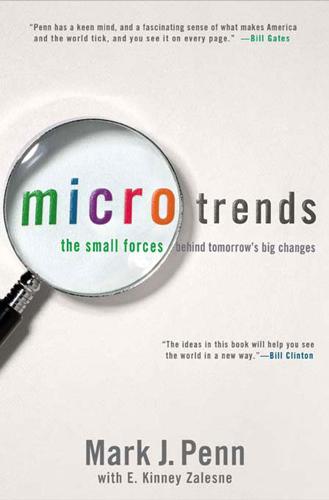
Microtrends: The Small Forces Behind Tomorrow's Big Changes
by
Mark Penn
and
E. Kinney Zalesne
Published 5 Sep 2007
Gas prices can make or break this group’s careers. Mr. Givens, the winner of Midas Muffler’s Longest Commute award, said that when he won, he was spending about $800 per month on gas. An Extreme Commuter in North Carolina bristled when President George W. Bush said in his 2006 State of the Union address that Americans were “addicted to oil.” Are we, she demanded, or are we just trying to get to work? People in the cities may not mind a gasoline tax, but these 3 million people won’t be voting for a gas tax candidate anytime soon. Extreme Commuters are also at greater risk for dangerous behavior like road rage, as well as health problems.
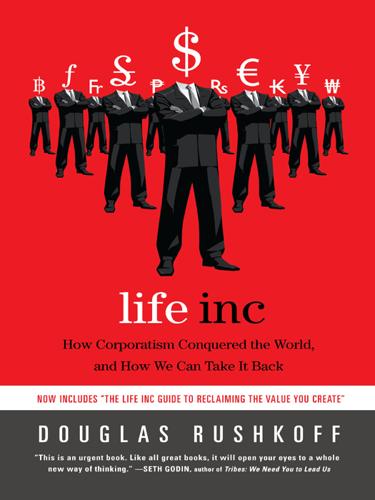
Life Inc.: How the World Became a Corporation and How to Take It Back
by
Douglas Rushkoff
Published 1 Jun 2009
The rest of us just don’t have the time, the energy, or the commitment to take a hands-on approach to anything but work and maybe family. We want to do right by the environment, but we still want to take two adults and two children to Disneyland for under a couple of thousand bucks. The best among us buy some carbon offsets online, as if to compensate for our addiction to oil the way an OxyContin addict snorts a line of speed when he gets to work. By the time we’ve used the Visa card to buy the offsets, we’ve involved a dozen corporations with their own biases and agendas in the offsetting of a branded Disney vacation that was itself planned to offset a desocialized and unfabulous life at home.
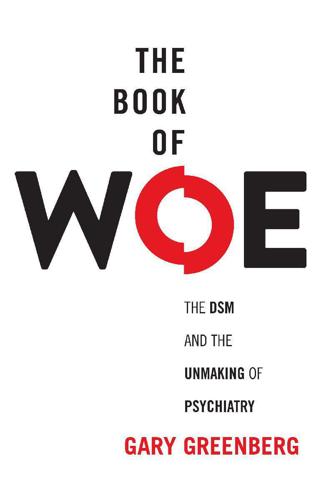
The Book of Woe: The DSM and the Unmaking of Psychiatry
by
Gary Greenberg
Published 1 May 2013
The problem is “compulsive, out-of-control drug seeking.” O’Brien would have preferred to call the reformulated disorder addiction, but “some people have a kind of allergy to the word,” believing that it carries too much stigma. Avoiding the a-word is “useless,” O’Brien said. “When you have the president talking about addiction to oil, the word has lost its pejorative tone,” and besides, even if the president did mean it pejoratively, addiction is “what the average doctor is going to call it.” But the chair was evidently outvoted, and the anodyne new name won the day. Whatever its name, O’Brien had no doubt about the nature of the problem.
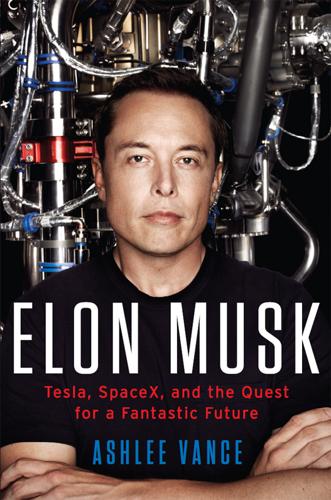
Elon Musk: Tesla, SpaceX, and the Quest for a Fantastic Future
by
Ashlee Vance
Published 18 May 2015
“The following Monday, Martin and I flew down to meet him again, and he said, ‘Okay, I’m in.’” The Tesla founders felt like they had lucked into the perfect investor. Musk had the engineering smarts to know what they were building. He also shared their larger goal of trying to end the United States’ addiction to oil. “You need angel investors to have some belief, and it wasn’t a purely financial transaction for him,” Tarpenning said. “He wanted to change the energy equation of the country.” With an investment of $6.5 million, Musk had become the largest shareholder of Tesla and the chairman of the company.
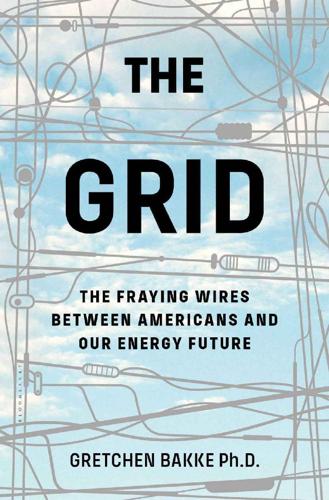
The Grid: The Fraying Wires Between Americans and Our Energy Future
by
Gretchen Bakke
Published 25 Jul 2016
In English to be an addict is to have a totalizing identity, controlled by a “soul-destroying, mind-numbing obsession that makes normal functioning impossible.” As such, addicts are wholly governed by the fact of addiction, which, to put it mildly, “obscures other important qualities about them.” Not so in German. The most accurate, if graceless, translation for an “addict” would be something like “seeky.” So that if Americans are addicted to oil, then our own language renders us nothing but. By this definition, all we do, all the time, is suck up oil in ever vaster quantities, at ever-increasing cost, and at the expense of our general well-being. Many people in the United States, as well as citizens of Kuwait, Iraq, and Venezuela, would likely say that this is an apt description of Americans’ behavior in relationship to their oil.
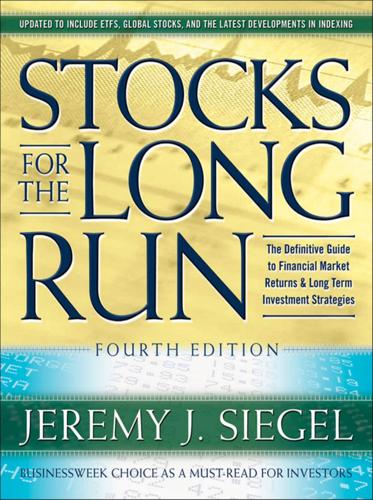
Stocks for the Long Run, 4th Edition: The Definitive Guide to Financial Market Returns & Long Term Investment Strategies
by
Jeremy J. Siegel
Published 18 Dec 2007
The collapse of communism in the former Soviet Union and Eastern Europe has broadened the list even further. And many countries in Latin America, although not all, have adopted the free-market principles that have given Chile the second highest per capita income on the continent. The Middle East and Africa have most certainly lagged. The Middle East is addicted to oil revenue and sectarian strife, and Africa is slowly emerging from a dark period of misrule and exploitation. But here too there has been some progress: the remarkable growth of Dubai has shown the Arab world that oil need not be the cornerstone of prosperity, and Africa is experiencing increased economic activity.
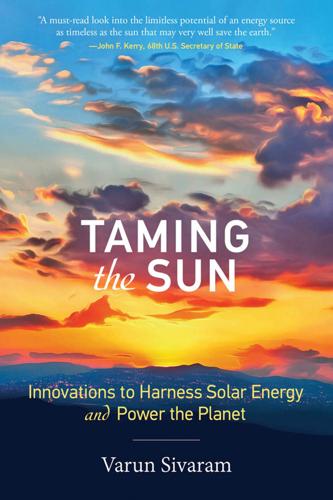
Taming the Sun: Innovations to Harness Solar Energy and Power the Planet
by
Varun Sivaram
Published 2 Mar 2018
Whereas the rest of the world will be worse off in the first future, Saudi Arabia might be just fine. Even if it just derived a small fraction of its electricity from solar PV, the oil export revenue that it would gain might enable it to continue its lavish spending habits. Most important, in the first future, the world would remain addicted to oil—good news for the kingdom’s coffers. Nevertheless, even Saudi Arabia would enjoy some benefits in the second future. Less extreme climate change would spare it from deadly heat waves, and improved solar technologies could make a transition to clean energy much cheaper at home, offsetting some of the pain from slowing global demand for Saudi oil.
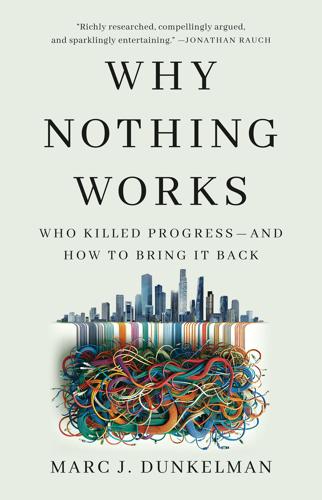
Why Nothing Works: Who Killed Progress--And How to Bring It Back
by
Marc J Dunkelman
Published 17 Feb 2025
It’s not just that LEOBOR-like statutes sometimes have the perverse effect of making it harder to do good things—like get rid of bad cops. As we’ll see in subsequent chapters, the new regime has also made it more difficult to build affordable housing, and to construct new high-speed rail lines, and to site the transmission lines required to deliver renewable energy to places eager to overcome their addiction to oil and gas. But the most profound detriment of the system Jeffersonian progressivism has created is that it has made government, in many realms, authentically incompetent. That, as we’ll see, has now become progressivism’s great political burden. Who in their right mind would seek to give more power to this sort of dysfunctional, do-the-least-possible version of government?

In the Realm of Hungry Ghosts: Close Encounters With Addiction
by
Gabor Mate
and
Peter A. Levine
Published 5 Jan 2010
Koran accurately describes the potential consequences of compulsive buying: “serious psychological, financial and family problems, including depression, overwhelming debt and the breakup of relationships.”3 But it’s clearly not a distinct entity—only another manifestation of addiction tendencies that run through our culture, and of the fundamental addiction process that varies only in its targets, not its basic characteristics. In his 2006 State of the Union address, President George W. Bush identified another item of addiction. “Here we have a serious problem,” he said. “America is addicted to oil.” Coming from a man who throughout his financial and political career has had the closest possible ties to the oil industry, this stark admission might have been transformational. Unfortunately, Mr. Bush framed the problem purely in geopolitical terms: the U.S. finds itself dependent on a resource from abroad, a resource that “the enemies of freedom” would deny its citizens.

Sugar: A Bittersweet History
by
Elizabeth Abbott
Published 14 Sep 2011
Equitably paid workers committed to organic, environmentfriendly farming will support the sustainable development that is one of sugar’s—and its biofuel’s—most extraordinary advantages. Big (Better) Sugar will still confront rivals—corn in the New World, wheat in the old—and drastically changing political priorities. In the United States, a growing revulsion against the political and environmental consequences of dependence on (or addiction to) oil has sparked a rush to ethanol and federal tax credits for its production. The urgency and incentives to mass-produce ethanol have created serious new issues. One is that low production costs of corn and other grains trump sugar’s superior energy efficiency; though self-sufficiency is achieved, significant reduction of fossil fuel is not.
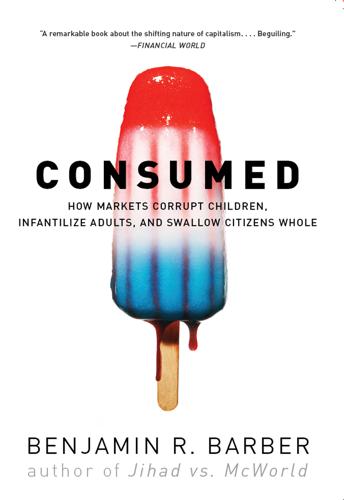
Consumed: How Markets Corrupt Children, Infantilize Adults, and Swallow Citizens Whole
by
Benjamin R. Barber
Published 1 Jan 2007
In other words, civic schizophrenia has to be treated globally as well as locally, but there are only local citizens bounded by their national loyalties, and they cannot rein in the rampant desires of unleashed global consumers. How can toxic substances and drugs, including tobacco and alcohol, be effectively regulated when they can so easily slip the bonds of national oversight? Critics of the American “addiction to oil,” including President Bush himself, as well as critics of President Bush who protest his outsourcing of American port security to firms under the sway of “foreign” governments such as the United Arab Emirates, share a common illusion—that control over the production and distribution of oil or meaningful control over national port security anywhere can realistically be exercised by singular sovereign nations, even when they are hegemonic and democratic and even when they expressly choose to exercise it.
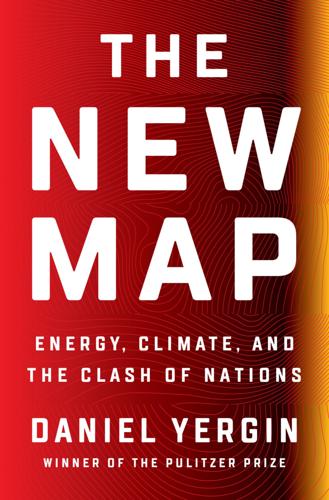
The New Map: Energy, Climate, and the Clash of Nations
by
Daniel Yergin
Published 14 Sep 2020
For them, without change, the number of jobs will be insufficient, leaving them discontented and susceptible to the pulls of extremism or alienation. Central to Saudi Arabia’s challenges is its dependence on oil exports. “We will not allow our country ever to be at the mercy of commodity price volatility or external markets,” says MBS. Yet he also declares that Saudi Arabia has “a case of addiction to oil.” To explain the new policies, he turns to history and his grandfather. “King Abdul Aziz and the men who worked with him,” he says, had “established the kingdom without depending on oil, and they ran this state without oil, and lived in this state without oil.”3 That was certainly true. And yet it was oil, along with Mecca and Islam, that did so much to make Saudi Arabia what it is today

Bleeding Edge: A Novel
by
Thomas Pynchon
Published 16 Sep 2013
The thought did enter Sid’s mind, as he admits later, but that would have brought the Coast Guard into this too, so instead, gambling on DEA caution and hardware limitations, with the World Trade Center leaning, looming brilliantly curtained in light gigantically off their port quarter, and someplace farther out in the darkness a vast unforgiving ocean, Sid keeps hugging the right side of the channel, past Ellis Island and the Statue of Liberty, past the Bayonne Marine Terminal, till he sees the Robbins Reef Light ahead, makes like he’s going to pass it too, then at the last minute hooks a steep right, nimbly and not always according to the rules of the road proceeding then to dodge anchored vessels towering in out of nowhere and oil tankers under way in the dark, sliding into Constable Hook Reach and on down the Kill Van Kull. Passing Port Richmond, “Hey, Denino’s somewhere off the port beam here, anybody feel like grabbing a pizza?” Rhetorical, it seems. Under the high-arching openwork of the Bayonne Bridge. Oil-storage tanks, tanker traffic forever unsleeping. Addiction to oil gradually converging with the other national bad habit, inability to deal with refuse. Maxine has been smelling garbage for a while, and now it intensifies as they approach a lofty mountain range of waste. Neglected little creeks, strangely luminous canyon walls of garbage, smells of methane, death and decay, chemicals unpronounceable as the names of God, the heaps of landfill bigger than Maxine imagines they’d be, reaching close to 200 feet overhead according to Sid, higher than a typical residential building on the Yupper West Side.
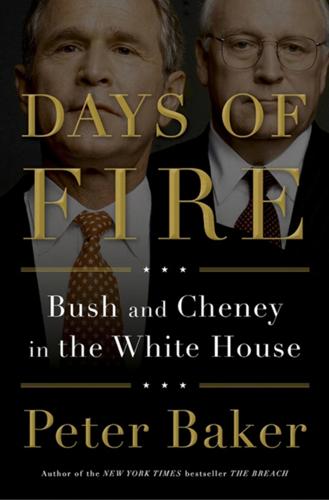
Days of Fire: Bush and Cheney in the White House
by
Peter Baker
Published 21 Oct 2013
His State of the Union would call for a two-decade project to break American energy dependence, echoing promises made by presidents for generations. His goal was to replace more than 75 percent of Middle East oil imports by 2025. After multiple drafts of the speech, he inserted his own catchphrase near the end of the process: “America is addicted to oil.” Coming from a former oilman, that would have resonance. And the choice of the word “addicted” for the former drinker was no accident. If Bush believed in redemption for the individual, this was a chance for national salvation. “That was all him,” said Jim Connaughton, chairman of the Council on Environmental Quality.
…
The Senate had confirmed Samuel Alito 58 to 42, overcoming Democratic filibuster threats. Alito was sworn in, just in time to appear in the House chamber in black robes next to the other justices. “Keeping America competitive requires affordable energy,” Bush declared in the fifty-one-minute address. “And here we have a serious problem: America is addicted to oil, which is often imported from unstable parts of the world. The best way to break this addiction is through technology.” The State of the Union was kicking off a new year. Things had to get better. What else could go wrong? 25 “Please do not let anything happen today” The quail flushed from its covey and flew off into the Texas sky.
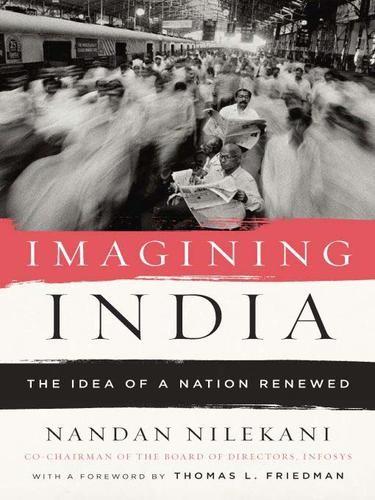
Imagining India
by
Nandan Nilekani
Published 25 Nov 2008
We do not need to create a plethora of lifestyle diseases before we realize that wellness from a balanced diet, exercise and a moderate lifestyle is a good idea. We do not need to burn through our forests and drain our groundwater before we realize that abusing the environment has awful consequences. We do not need to grow addicted to oil before we realize the potential of renewable energy. We do not need to grow old before we realize that the state’s pension liabilities have become unsustainable, and we can avoid clumsy forms of governance by using information technology. Mahesh Rangarajan tells me that for India this lack of innovation seems to be the default mind-set.
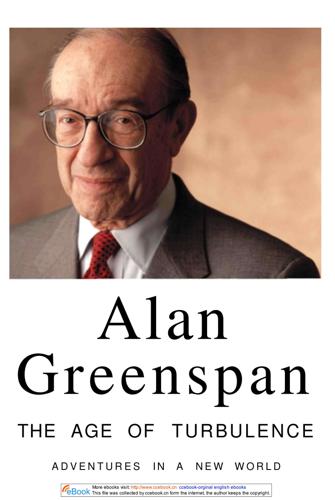
The Age of Turbulence: Adventures in a New World (Hardback) - Common
by
Alan Greenspan
Published 14 Jun 2007
I do know that the future of the Middle East is a most important consideration in any longterm energy forecast. Even though oil-use intensity has been significantly reduced, the role of oil is still such that an oil crisis can wreak heavy damage on the world economy. Until industrial economies disengage themselves from, as President George W. Bush put it, "our addiction to oil," the stability of the industrial economies and hence the global economy will remain at risk. 463 More ebooks visit: http://www.ccebook.cn ccebook-orginal english ebooks This file was collected by ccebook.cn form the internet, the author keeps the copyright. T W E N T Y - F I V E THE DELPHIC FUTURE P eople have always been enthralled by the notion that it is possible to peer into the future.

MONEY Master the Game: 7 Simple Steps to Financial Freedom
by
Tony Robbins
Published 18 Nov 2014
Let’s switch gears and talk about energy independence. You made your fortune in the oil industry. You’re not the most likely candidate to be preaching oil independence for this country, and yet that’s been your mission for the past seven years. Tell me about the Pickens Plan. TBP: Here’s the thing, Tony. America is addicted to oil. And that addiction threatens our economy, our environment, and our national security. It’s been getting worse every decade. In 1970 we imported 24% of our oil. Today it’s nearly 70%, and growing. TR: Wow. So you’re trying to move us away from that. TBP: Well, we’ve put our security in the hands of potentially unfriendly and unstable foreign nations.

Why the West Rules--For Now: The Patterns of History, and What They Reveal About the Future
by
Ian Morris
Published 11 Oct 2010
When western Europe’s power waned in the 1950s, the United States stepped in, covertly or overtly intervening to help friends, harm enemies, and preserve access in the arc. Although less dependent on Gulf oil, the Soviet Union meddled almost as vigorously to deny it to American interests, and when Russia retreated in the 1990s, China’s addiction to oil (which accounts for 40 percent of the rise in global demand since 2000) forced it, too, to join the great game. China’s hunger for resources (soybeans, iron, copper, cobalt, timber, and natural gas as well as oil) promises constant clashes with Western interests in the arc of instability in the 2010s.